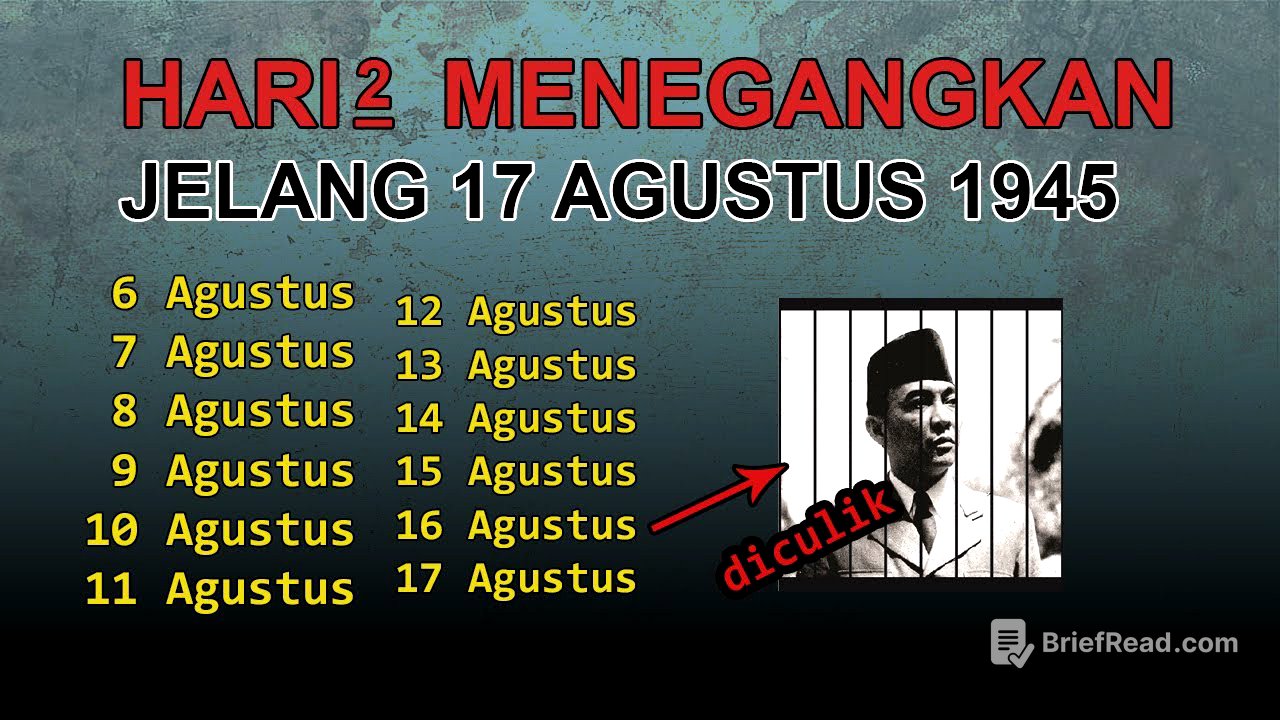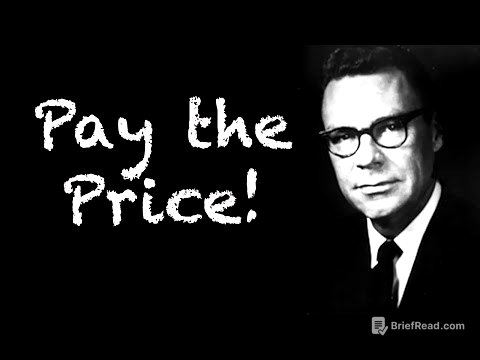TLDR;
This video recounts the historical events leading up to Indonesia's independence, starting from the initial colonization by European powers to the eventual proclamation of independence in 1945. It covers key events such as the atomic bombings of Hiroshima and Nagasaki, the surrender of Japan, and the internal conflicts and negotiations among Indonesian leaders and youth groups that shaped the declaration of independence.
- Colonization and Early Conflicts
- The Impact of World War II
- The Proclamation of Independence
The Onset of Colonization [0:37]
The video starts by explaining how the fall of the Malacca Sultanate opened the doors for European colonization in the archipelago. The Portuguese initiated this era in 1511, followed by the Dutch, a brief period of British rule, and then a return to Dutch control. This period of colonization lasted until the Japanese occupation, which ended with the proclamation of independence on August 17, 1945.
The Impact of World War II [1:46]
The video describes the impact of World War II, particularly the atomic bombing of Hiroshima by the United States, which resulted in immense devastation and over 120,000 deaths. Following this, Japan dissolved BPUPKI and formed PPKI, led by Sukarno and Hatta. The Soviet Union's declaration of war against Japan and subsequent invasion of Japanese-controlled territories further weakened Japan's position. The U.S. dropped another atomic bomb on Nagasaki, leading to Japan's unconditional surrender.
Towards Proclamation [3:48]
Sutan Syahrir heard news of Japan's surrender via radio and spread the word, prompting underground movements to prepare for independence. Sukarno, Hatta, and Radjiman were summoned to Dalat, Vietnam, to meet with General Terauchi, who promised Indonesia would soon receive its independence. As the Japanese faced internal turmoil and external pressure, they eventually agreed to grant Indonesia independence.
The Proclamation of Independence [5:34]
Emperor Hirohito convened with military leaders to address the devastation in Hiroshima and Nagasaki, leading to Japan's unconditional surrender. Sutan Syahrir and youth groups in Cirebon moved quickly to proclaim independence. Sukarno and Hatta were then urged by youth groups to declare independence immediately, leading to the proclamation. This marked the beginning of diplomatic and armed resistance until the Netherlands formally recognized Indonesia's independence in 1949.









